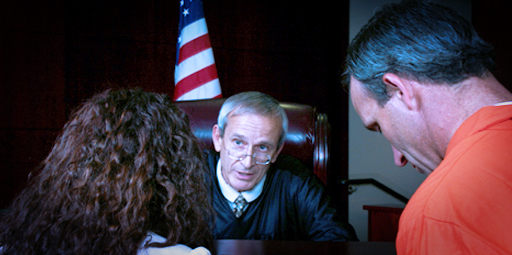Protecting Institutions from Employees
[vc_row css_animation="" row_type="row" use_row_as_full_screen_section="no" type="full_width" angled_section="no" text_align="left" background_image_as_pattern="without_pattern"][vc_column][vc_column_text] Apples are wonderful, but it only takes one bad apple to spoil the bunch. The same can be said of employees. Most are wonderful, well-intentioned contributors to a culture of success.
However, one employee acting irresponsibly can cause a great deal of harm to any organization. For example, take the recent case of Pennsylvania State University and their former assistant football coach, Jerry Sandusky.
For the few people in the country unfamiliar with this tragedy, Jerry Sandusky was convicted in June of sexually abusing several boys. Most were abused inside of campus buildings, which is not only horribly tragic, but put the university itself under legal fire. According to Chad Hemenway of Property Casualty 360, Penn State finds itself now sorting through multiple settlements for Sandusky’s victims.
Apples are wonderful, but it only takes one bad apple to spoil the bunch. The same can be said of employees. Most are wonderful, well-intentioned contributors to a culture of success.
However, one employee acting irresponsibly can cause a great deal of harm to any organization. For example, take the recent case of Pennsylvania State University and their former assistant football coach, Jerry Sandusky.
For the few people in the country unfamiliar with this tragedy, Jerry Sandusky was convicted in June of sexually abusing several boys. Most were abused inside of campus buildings, which is not only horribly tragic, but put the university itself under legal fire. According to Chad Hemenway of Property Casualty 360, Penn State finds itself now sorting through multiple settlements for Sandusky’s victims.
02 October, 2012
Legal Liabilities Faced by Homeowners Associations
 Directors of HOA organizations have the unenviable task of completing large “to do” lists while assuming the risk of offending neighbors if they don’t like your decisions. While maintaining the common areas in their neighborhood, directors must:
Directors of HOA organizations have the unenviable task of completing large “to do” lists while assuming the risk of offending neighbors if they don’t like your decisions. While maintaining the common areas in their neighborhood, directors must:
- Act in good faith and candor
- Act in the interests of another and avoid transactions that result in personal gain
- Not exert undo pressure or act without the knowledge and consent of those he represents
20 June, 2012
Peace of Mind During Economic Storms
 Running a business is a matter of managing the ups and downs. Hopefully more ups than downs. Whether part of the board or one of the top executives in a corporation, you realize you’ve got to handle the pitch and roll in order to keep the business afloat. Particularly in these difficult economic times.
During financially difficult times people are more prone to seek out and take legal action against any perceived corporate misstep. Top-level decisions can be challenged by investors, regulators, and even criminal prosecutors. And, so it is more important than ever that directors understand their obligations and potential liabilities.
Running a business is a matter of managing the ups and downs. Hopefully more ups than downs. Whether part of the board or one of the top executives in a corporation, you realize you’ve got to handle the pitch and roll in order to keep the business afloat. Particularly in these difficult economic times.
During financially difficult times people are more prone to seek out and take legal action against any perceived corporate misstep. Top-level decisions can be challenged by investors, regulators, and even criminal prosecutors. And, so it is more important than ever that directors understand their obligations and potential liabilities.
13 June, 2012
Professionals- You’re not as safe as you think
 Have you ever been summoned for jury duty? Well, let me tell you a little about it. You HAVE to go; no if, and, or buts about it.
You are sometimes allowed to reschedule, but you’ve still got to do your time. Missing work, school, birthdays, weddings, or whatever it may be is inconvenient to say the least. What if the case continues on for weeks or even months? Now can you imagine if you weren’t on the jury, but were the defendant?! It can happen easier than one might think, especially for all you professionals out there.
Thinking that you’re completely protected from lawsuits is a rather naïve assumption, especially nowadays. Recent trends in court decisions have been holding HR practitioners, supervisors, business owners, and other decision-makers personally liable for their actions under several employment laws.
Have you ever been summoned for jury duty? Well, let me tell you a little about it. You HAVE to go; no if, and, or buts about it.
You are sometimes allowed to reschedule, but you’ve still got to do your time. Missing work, school, birthdays, weddings, or whatever it may be is inconvenient to say the least. What if the case continues on for weeks or even months? Now can you imagine if you weren’t on the jury, but were the defendant?! It can happen easier than one might think, especially for all you professionals out there.
Thinking that you’re completely protected from lawsuits is a rather naïve assumption, especially nowadays. Recent trends in court decisions have been holding HR practitioners, supervisors, business owners, and other decision-makers personally liable for their actions under several employment laws.
29 February, 2012
Lawsuits in Today’s World
[vc_row css_animation="" row_type="row" use_row_as_full_screen_section="no" type="full_width" angled_section="no" text_align="left" background_image_as_pattern="without_pattern"][vc_column][vc_column_text] It’s an unfortunate fact that the world in which we live is getting a little litigious. Lawsuits these days can pop up out of anywhere, and they aren’t always legitimate.
Lawsuits are especially present when your net worth gets higher. Sometimes, personal lawsuits can seek up to two-to-five million dollars, and for people who live or work in lawsuit-heavy industries (i.e. nonprofit organizations, condominium rentals, etc.), it might be a good idea to evaluate where your regular home policies might fall short, and where a personal liability policy might be a good idea.
A friend of mine works with kids, coaching sports at a local school. While most of us question her sanity, we also admire how much good she does in the lives of those girls. She told me a story, though, that made me realize how sticky a situation working with kids can be.
It’s an unfortunate fact that the world in which we live is getting a little litigious. Lawsuits these days can pop up out of anywhere, and they aren’t always legitimate.
Lawsuits are especially present when your net worth gets higher. Sometimes, personal lawsuits can seek up to two-to-five million dollars, and for people who live or work in lawsuit-heavy industries (i.e. nonprofit organizations, condominium rentals, etc.), it might be a good idea to evaluate where your regular home policies might fall short, and where a personal liability policy might be a good idea.
A friend of mine works with kids, coaching sports at a local school. While most of us question her sanity, we also admire how much good she does in the lives of those girls. She told me a story, though, that made me realize how sticky a situation working with kids can be.
24 February, 2012
What Should Keep Employers Up At Night
 Every business knows it has to watch its bottom line, its profit margins, its vendor relationships, its break-even points, and its fixed and variable costs. And at night when the world finally goes quiet, good employers are still thinking about their quarterly goals and their fiscal projections.
But according to 2010 statistics what should actually be keeping employers up at night is how liable their company is to litigation. And not only their company but themselves, personally.
Statistics released by the Equal Opportunity Commission (EEOC) show that record-breaking discrimination charges were filed in 2010 on behalf of US employees. The increase marked a 7.1% growth over 2009 and the highest number since 1965. Retaliation claims were up 7.9% over 2009. Disabilities discrimination claims were up 17%. Racial discrimination claims were up 6.9%. And the list goes on.
Every business knows it has to watch its bottom line, its profit margins, its vendor relationships, its break-even points, and its fixed and variable costs. And at night when the world finally goes quiet, good employers are still thinking about their quarterly goals and their fiscal projections.
But according to 2010 statistics what should actually be keeping employers up at night is how liable their company is to litigation. And not only their company but themselves, personally.
Statistics released by the Equal Opportunity Commission (EEOC) show that record-breaking discrimination charges were filed in 2010 on behalf of US employees. The increase marked a 7.1% growth over 2009 and the highest number since 1965. Retaliation claims were up 7.9% over 2009. Disabilities discrimination claims were up 17%. Racial discrimination claims were up 6.9%. And the list goes on.
03 February, 2012
Pre-paid Legal Shortfalls
 Protection is a natural instinct. We throw our arms across our children when anticipating a car wreck; we double-check the stove, iron, and electric blanket to make sure they’re all off before leaving the house; we worry about giving credit card information out online.
One form of legal protection that has been increasing in popularity since the 1970s is pre-paid legal services, and it is the result of that same, natural inclination towards protecting ourselves, those around us, and the possessions and careers we have worked so hard to build.
There are, however, both pros and cons where pre-paid legal services are involved. First, let’s explain what a pre-paid legal service (PPL or PPLS) actually is.
Protection is a natural instinct. We throw our arms across our children when anticipating a car wreck; we double-check the stove, iron, and electric blanket to make sure they’re all off before leaving the house; we worry about giving credit card information out online.
One form of legal protection that has been increasing in popularity since the 1970s is pre-paid legal services, and it is the result of that same, natural inclination towards protecting ourselves, those around us, and the possessions and careers we have worked so hard to build.
There are, however, both pros and cons where pre-paid legal services are involved. First, let’s explain what a pre-paid legal service (PPL or PPLS) actually is.
06 January, 2012
- 1
- 2



